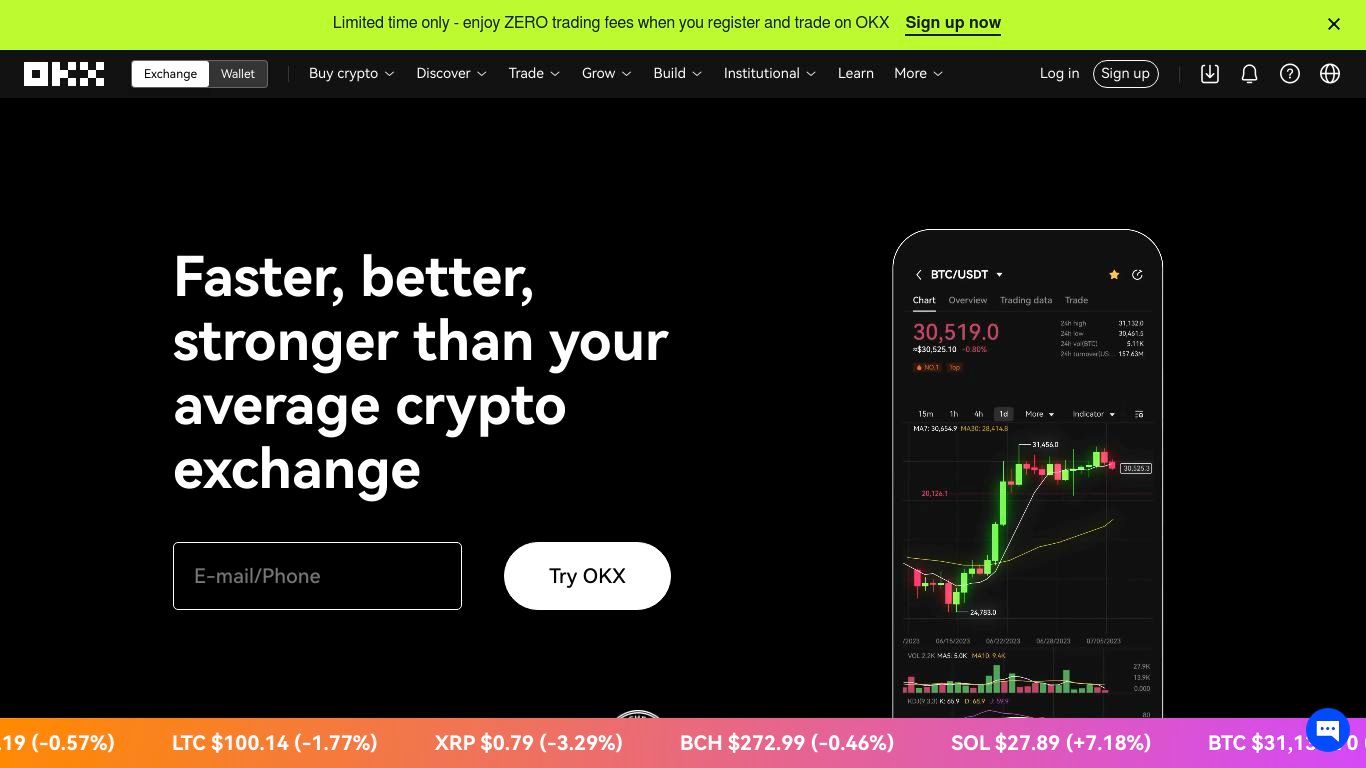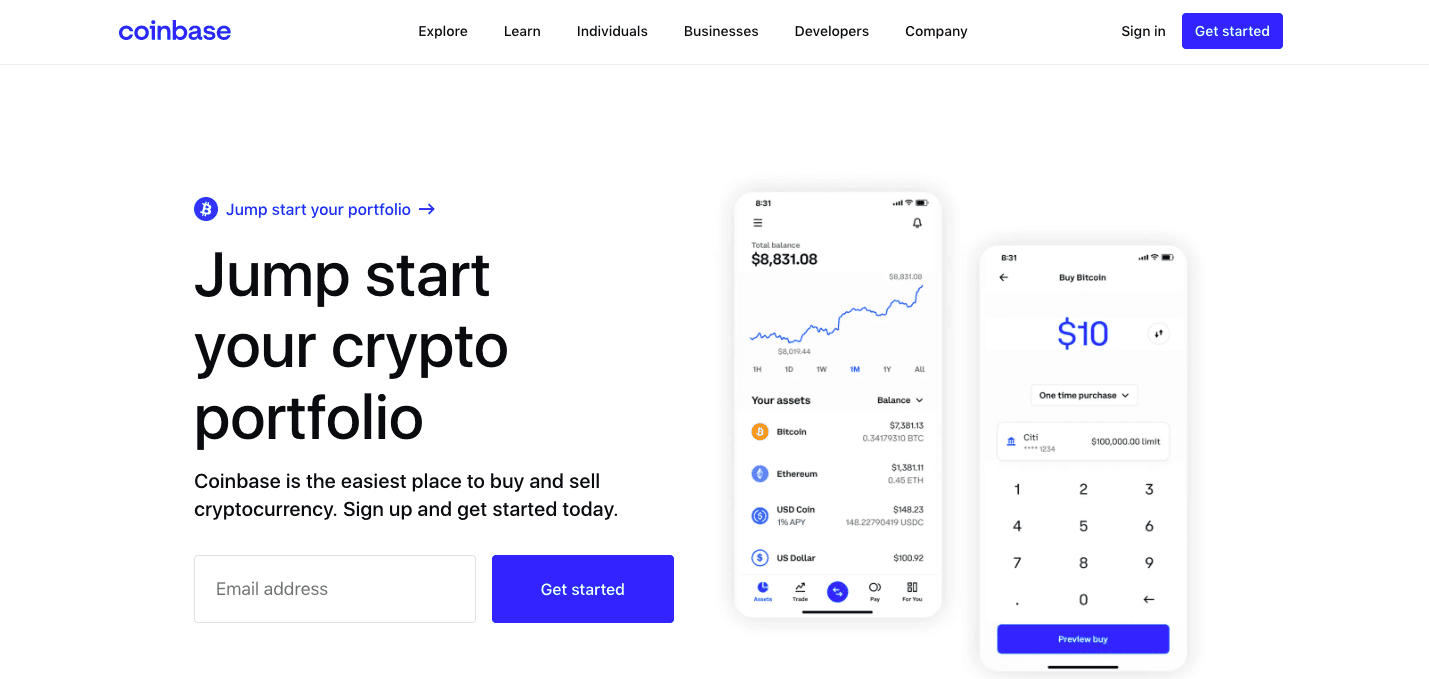Binance is one of the biggest names in crypto trading—but it’s not your only option. Whether you’re restricted by geography, concerned about compliance, or simply exploring new tools, there are several secure and advanced platforms you can trust.
In this post, we’ll explore 7 solid Binance alternatives, how to register and use them, plus the pros and cons of each—so you can find the platform that fits your trading or business goals.
1. Kraken – Trusted U.S. Regulated Exchange

Kraken is a long-standing, U.S.-regulated exchange with a reputation for security and compliance. It’s great for those looking for a reliable platform with solid fiat support.
How to Register:
- Go to kraken.com
- Click “Create Account”
- Complete email verification and ID KYC
- Enable 2FA and deposit via bank or crypto
✅ Pros:
- Highly secure and transparent
- Supports fiat trading (USD, EUR, etc.)
❌ Cons:
- Interface feels slow
- Fewer coins compared to Binance
2. KuCoin – Altcoin Heaven with Passive Income

KuCoin is known for its massive altcoin selection, trading bots, and passive income tools. It’s ideal for global users seeking more crypto diversity.
How to Register:
- Go to kucoin.com
- Register via email or phone
- Optional KYC (needed for higher limits)
- Fund with crypto or use P2P
✅ Pros:
- Huge coin variety
- Staking, lending, and bots built-in
❌ Cons:
- Less regulated
- Limited fiat withdrawals in some countries
3. Bybit – Best for Derivatives Traders

Bybit is built for fast, responsive trading—particularly in derivatives. However, it also supports spot trading and staking, making it versatile for pros and newcomers.
How to Register:
- Go to bybit.com
- Sign up with email or phone
- Complete KYC for fiat use
- Fund account and start trading
✅ Pros:
- Lightning-fast trading
- Great for perpetual contracts
❌ Cons:
- Risk of over-leveraging
- Fewer fiat payment options
4. OKX – Full Crypto Ecosystem in One

OKX, formerly OKEx, is a feature-rich exchange offering trading, staking, DeFi tools, an NFT marketplace, and even a Web3 wallet.
How to Register:
- Go to okx.com
- Sign up using email or phone
- Complete KYC for full access
- Explore spot, futures, and Web3 tools
✅ Pros:
- All-in-one platform (DeFi, NFT, wallet)
- Low fees and high liquidity
❌ Cons:
- Can be overwhelming for beginners
- Region-based restrictions
5. Coinbase – For Regulated & Beginner-Friendly Use

Coinbase is the most beginner-friendly exchange on the list, especially for users in the U.S. and Europe. It’s fully licensed and insured.
How to Register:
- Go to coinbase.com
- Sign up with full name, email, and phone
- Upload documents for KYC
- Link your bank card or account
✅ Pros:
- Extremely simple and secure
- Regulatory clarity and asset insurance
❌ Cons:
- High trading fees
- Basic features unless using Coinbase Pro
6. Bitget – Copy Trading + Futures for All Levels

Bitget has carved its niche with copy trading, letting users follow expert traders. It also supports futures and offers low fees across the board.
How to Register:
- Visit bitget.com
- Create an account using email or mobile
- Complete KYC
- Explore copy trading, spot, or futures markets
✅ Pros:
- Copy trading for passive earners
- Futures and low-fee trading
❌ Cons:
- Still growing its brand reputation
- Interface slightly complex at first
7. Cryptomus – Accept Crypto as a Business

Cryptomus isn’t a trading platform—it’s a crypto payment processor perfect for freelancers, merchants, and online stores. Accept Bitcoin, USDT, and more with ease.
How to Register:
- Go to cryptomus.com
- Click “Sign Up” or use Telegram
- Verify via email/OTP
- Set up a wallet or merchant account
✅ Pros:
- Accept crypto globally with ease
- Built-in invoicing, auto-conversion, and merchant tools
❌ Cons:
- Not built for trading or investing
- Limited blockchain networks
🧾 At a Glance: Feature Comparison
| Platform | Best For | Key Weakness |
|---|---|---|
| Kraken | Compliance & Security | Slower interface |
| KuCoin | Altcoin Variety | Not fully regulated |
| Bybit | Derivatives Trading | Leverage risk |
| OKX | DeFi/NFT Ecosystem | Learning curve |
| Coinbase | Beginners & Regulation | Higher fees |
| Bitget | Copy Trading & Futures | Less known brand |
| Cryptomus | Crypto Payments & Business | Not a trading platform |
✍️ Final Thoughts
There’s no “one-size-fits-all” exchange. Binance may dominate, but these alternatives bring value in different ways:
- Choose Kraken or Coinbase for regulation and peace of mind.
- Use KuCoin or Bitget if you’re after trading flexibility and tools.
- Prefer Bybit or OKX for advanced strategies and low latency.
- Go for Cryptomus if you run a business and want to accept crypto payments.
Whatever platform you choose—always enable 2FA, keep your funds secure, and never store large balances on any centralized exchange long-term.
💬 Which platform do you prefer over Binance? Let us know in the comments below!